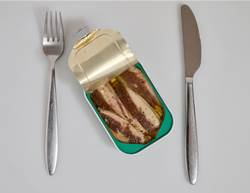Matcha tea isn’t just tasty (and photogenic)—it might support weight loss, too. If you’re not already familiar, matcha is a concentrated green tea powder made from the leaves of the Camellia sinensis plant. It has a vibrant green colour and a distinct flavour that’s often sweeter than other green teas. You’ll find it on café menus and in health food stores or easily online.
On its own, matcha is low in kilojoules. So swapping it in for high-calorie drinks like soft drink could help you reduce your daily intake. It also comes with other health perks—such as supporting liver function, improving focus and potentially lowering the risk of some chronic diseases. But the big question remains: can matcha actually help with weight loss? Here’s what experts and research say.
Note: If you have an existing medical condition or take prescribed medication, speak with your doctor before adding matcha to your diet. It contains caffeine and other compounds that may interact with some medicines.
Matcha’s nutritional profile
“One teaspoon of matcha green tea powder contains around 12 kilojoules, two grams of carbohydrates, two grams of fibre and no fat or protein,” says practising dietitian Jennifer Pallian. “It also contains bioactive compounds like catechins and lutein, plus vitamin K.”
Lutein is known for supporting eye health, cognitive function and skin protection, while vitamin K plays a key role in blood clotting and bone health. (We’ll get to catechins in a moment.)
Sweetened matcha is a different story. A half-teaspoon of sweetened matcha can deliver 20 to 30 kilojoules and contains roughly nine to 13 grams of added sugar.
If you’re having a matcha latte, it’ll be higher in kilojoules depending on your milk choice. For reference:
-
One cup of full-cream milk contains about 635kJ
-
Reduced-fat milk has around 444kJ
-
Dairy-free options like almond, soy or oat milk range from 192 to 480kJ per cup
A grande iced matcha latte with 2% milk from Starbucks contains roughly 795kJ, while the hot version clocks in at 920kJ.
“While it’s not a major source of vitamins or minerals due to the small serving size, matcha delivers a powerful antioxidant hit,” says accredited practising dietitian Josie Porter. “What makes it stand out is that you consume the entire powdered leaf—unlike regular tea, where the leaves are steeped and discarded.”
That means you’re getting more of the beneficial compounds—especially antioxidants like epigallocatechin gallate (EGCG). “When consumed in adequate amounts, EGCG has been linked to a range of health benefits,” Porter adds.
Does matcha help you lose weight?
While matcha isn’t a magic fix, studies suggest it may support weight loss. It could be a helpful addition to other strategies, like regular exercise and a balanced diet. “Matcha alone probably won’t lead to significant weight loss unless other habits change too,” says Porter.
One review of scientific studies found that body weight, body mass index (BMI) and waist circumference were reduced in participants with obesity who consumed green tea. However, the researchers also stressed the importance of pairing green tea with healthy eating and physical activity.
So how might matcha support weight loss? Experts suggest there could be several factors at play. Here are a few ways matcha may help:
1. Matcha contains caffeine, which may support fat loss.
“In general, caffeine can support weight loss,” says Pallian, who refers to a 2023 study involving 1,483 people with metabolic syndrome. The study found that increasing caffeinated coffee intake from none or low levels to moderate consumption (around one to seven cups per week) was linked to lower total body fat, trunk fat and visceral fat.
“That said, going beyond moderate levels didn’t provide extra benefits, so moderation is key,” she adds.
While that study focused on coffee, matcha contains caffeine too—anywhere from 38 to 89 milligrams per 250mL cup, compared to about 100 to 120 milligrams in coffee. Other studies have also linked caffeine to weight loss. A 2019 meta-analysis showed that caffeine intake was associated with greater weight loss, lower BMI and reduced body fat overall.
2. Matcha may enhance fat oxidation during exercise.
In a small 2021 study, women who took three grams of matcha daily for three weeks and completed 30-minute walks saw an increase in fat oxidation—the process your body uses to break down fat for energy.
This doesn’t mean matcha causes fat loss directly. The researchers noted that the benefits were likely influenced by the walking itself. Heart rate and total energy expenditure stayed the same, and there were no changes in body composition tied specifically to matcha.
3. The catechins in matcha may influence metabolism.
“Catechins—especially epigallocatechin gallate (EGCG), the most abundant and active catechin in matcha—may support weight loss,” says Pallian. These compounds have been shown to enhance thermogenesis (the process your body uses to burn kilojoules) and increase fat oxidation.
Some human studies also suggest that catechin-rich teas may help increase satiety and reduce energy intake at the next meal. This is likely due to their influence on hormones like ghrelin and adiponectin, as well as on neurotransmitters like dopamine, which play a role in reward and appetite. However, the evidence is mixed and more research is needed to draw firm conclusions.
FAQ
Does matcha help you burn belly fat?
“Matcha may slightly support fat oxidation or boost energy use, but it’s not a guaranteed or targeted fat-loss solution,” says Porter. And while you can’t spot-reduce fat, overall fat loss can lead to reductions in belly fat too.
How much matcha should I drink to lose weight?
Matcha might help support your goals, but it’s not a magic fix. “That said, swapping a sugary latte for plain matcha is a smart move—just keep it simple so you don’t add back what you’re trying to avoid,” says Porter.
In one study linking matcha to weight loss, participants drank two grams (roughly one serving) of matcha powder mixed with water daily for 12 weeks. That could be a good starting point if you want to try adding it to your routine.
Is it okay to drink matcha every day?
If you have a medical condition or are taking any medications, speak with your doctor before trying matcha to ensure there are no interactions. For instance, green tea may interfere with blood thinners.
That said, matcha can be safe and even beneficial for most people. “Just keep an eye on your total caffeine intake, especially if you’re also drinking coffee or tea elsewhere,” says Porter. “If you’re pregnant or sensitive to caffeine, you may need to limit it—but otherwise, a daily matcha is generally fine.” Like most things in your diet, moderation is key.
Dietary supplements are designed to support a healthy diet. They’re not medicines and aren’t intended to treat, prevent or cure disease. If you’re pregnant or breastfeeding or considering giving supplements to a child, always check with a healthcare professional first.



.jpg&h=90&w=90&c=1&s=1)





.jpg&h=193&w=250&c=1&s=1)
